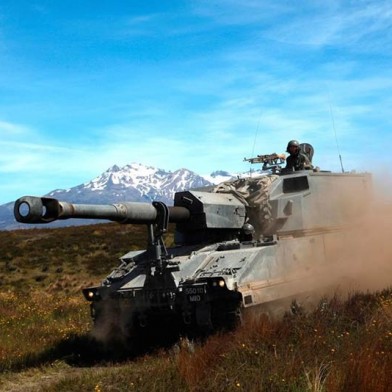OPINION: The curtain finally fell last week on the week-long grand gathering of the 19th Congress of the Chinese Communist Party (CCP).
The 2,287-delegate Congress approved the work and performance of the leadership since the last Congress five years ago, confirmed a new leadership, and set the Party’s platform for the years to come.
The months leading to the Congress saw intense speculation that it would be a turning point in leader Xi Jinping’s ascendance to power, and an opportunity for the CCP to institutionalise this. This was, in many ways, reflected in the outcomes of the Congress.
Xi the architect of China’s new direction
Xi’s consolidation of power has been a key feature of Chinese politics in recent years, with the political forces competing for leadership within the CCP and in the political system either weakened, marginalised or removed.
Xi has effectively overcome challenges from some senior military elites, state bureaucrats, and business and intellectual groups largely associated with the development and governance models of his predecessors. Of the seven members of the all-powerful Politburo Standing Committee, five are new. This is quite unusual for the leadership’s second-term shake-up.
The Congress also, as expected, revised its Constitution to reflect adjustments in the Party’s ideology and overall mission.
The Party has a tradition of justifying its role and platform on the basis of its understanding of the “main contradictions” in society at the time. This time, the Congress has adopted a new understanding of these “main contradictions” as being between “the growing needs of the people for high-quality life and the imbalanced and insufficient development”.
The Party seems to accept that China has changed from a growth-focused society to a society facing broad development challenges. This sets the underlying theme for China’s major social, economic and political programmes and policies for the new era. This also lifts Xi, presumably the framer of this new thinking, to the same political status of Mao and Deng in Chinese history. Both Mao and Deng had their own distinct interpretations of the “main contradictions” in their times.
Practice of the party-state institutionalised
The Congress outcomes clearly show the effects of larger efforts by Xi to consolidate the power and capacity of the CCP in China’s overall governance structure, particularly in the CCP’s relation with the state.
One particular item of “administrative reforms” in the action plan is about the merging of state agencies and the Party, from the provincial levels all the way down, where the Party and agencies have similar or overlapping functions and responsibilities. The Party secretary will be the first official of responsibility and authority at a state organisation or agency. A Party secretary/branch will be established in all organisations, in public or private sector. All of these institutionalise the practice of the Party-state: Party and state institutions are incorporated and the Party dominates over the state.
If CCP’s thinking and practice over the idea and arrangements of the Party-state has been ambiguous and hesitant in the past, the 19th Party Congress made it abundantly clear that the Party-state incorporation is a required institutional framework for governance in China, for an agency, organisation, institution, or enterprise, and indeed the state itself.
Impact on New Zealand
What does all that mean for New Zealand? At one level, not much. Things in or from China that have impact on us have been with us already for some time, be they China’s grand programmes of internationalisation of its economy, or the great levels of flow of products, capital, activities and people.
On another level though, it will probably matter. Although the Party Congress declared China has entered a new era, China’s programmes and policies are still very much centred around the logic of an industrialising society that often takes a whole-of-society, and increasingly now, the whole-of-the world, approach to using material, societal and institutional resources to achieve its development goals.
On the institutional side in particular, China will more likely be flexible, revolutionary or innovative. Taking this internationally, China will probably see quite dynamic interaction with countries such as New Zealand, which views the prevailing international institutions and norms as an integral part of its national interest. We will probably see their different expectations toward each other, for example, in areas of regional issues in the Asia-Pacific where multilateral economic and security institutions play their role in helping forge security and prosperity for nations and peoples in the region.
At a time when China is calling for “capitalism with a Party hand”, there has also been a call for “capitalism with a human face” in New Zealand. It is unclear how this might play out in the upcoming engagement and interaction between the two countries. The latest policy announcement by New Zealand’s new government to ban foreign home-buyers will certainly send a signal of some sort.
The phrase “with a Party hand” is critical here. It’s not just the interests and purposes of China in its international programmes and activities that matter, but also how China organises the advance of these interests. We will probably see programmes and activities in and from China to be much more effectively and purposefully organised according to China’s interests. Some of the past sticky issues in China’s international engagement, for instance, the problem of state enterprises in international economic negotiation, would probably be re-approached. China has already shifted its focus from the TPP and RCEP to the Belt & Road Initiative, while New Zeaalnd’s new government is taking steps to push for the TPP to be renegotiated.
After all, the message coming out of the Congress is simple and clear: It is the Party that matters there, or more precisely, it is Chairman Xi that matters.
Views expressed are personal to the author. Read other expert views by New Zealand commentators here.
– Asia Media Centre

